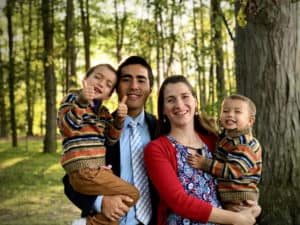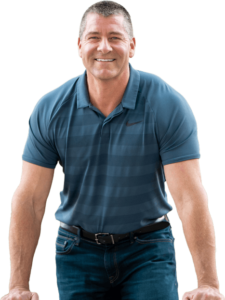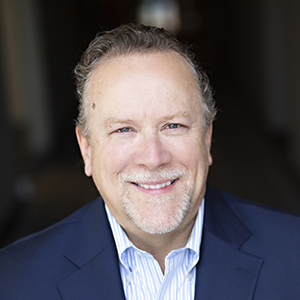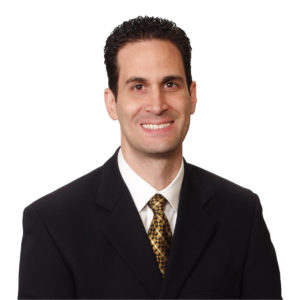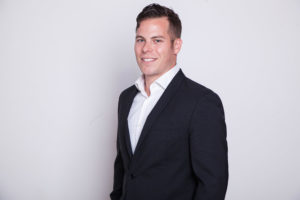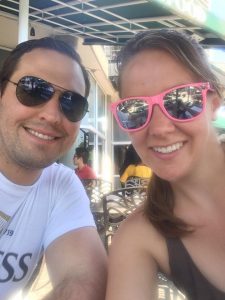Denis O’Brien [0:37]
Welcome to Episode 208. Dustin from Master Passive Income. Hey Money clan, a warm welcome to the Chain of Wealth podcast. I’m your host, Denis O’Brien.
Katie Welsh [0:49]
And I’m Katie Welsh.
Denis O’Brien [0:50]
So Katie, really fun conversation with a Dustin who we recently met at Fincon.
Katie Welsh [0:55]
Yes. And that it’s so funny how all these people that are coming on our show, we’re like, real life friends with them now.
Denis O’Brien [1:2]
Yeah, it’s really cool. So Fincon is a big Expo that happens every year. And a lot of people that are in the media space and specially financial area get together and we all talk about money. It’s actually really fun.
Katie Welsh [1:13]
So in short, Dustin is living the dream because he works for himself, as his name implies, and we’ll talk about it later. He is a real estate investor. And that’s his full time job. And him and his wife and is 4 kids just travel and do their thing.
Denis O’Brien [1:33]
Yeah and they are able to do that because they’ve taken the time to set up these passive income streams through their real estate. Really, really cool to be able to, and it actually doesn’t take as much money as what you think it does. So that was really a nice eye opening element that we unlocked.
Katie Welsh [2:17]
A little nugget that he shared with us.
Denis O’Brien [1:50]
Yeah. So before we dive right into today’s show, are you currently invested in real estate we would love to hear from you hit us up on Instagram, it’s @chainofwealth on Instagram. Let us know if you’re currently invest in real estate, whether your house hacking or whatever it is, and we might feature you on a future show. We also have a giveaway that we’re busy doing so definitely hit us up. Let us know what you’re currently doing. Alright Kate are you ready to dive in?
Katie Welsh [2:15]
Yep.
Denis O’Brien [2:15]
Fantastic. Let’s do it.
Voice Over [2:17]
Welcome to Chain of Wealth. here’s your host, Denis inspiring you to begin your journey of financial freedom.
Denis O’Brien [2:30]
Dustin is the creator of masterpassiveincome.com, where he teaches people how to invest in real estate and bolster their portfolios through alternative investments. Dustin is now living off his real estate portfolio and travels full time with his family. Welcome, Dustin.
Katie Welsh [2:51]
Hey, Dustin.
Dustin Heiner [3:21]
Hey, guys, thank you so much for having me. I’m super excited to be there with you guys.
Katie Welsh [2:56]
Okay, Dustin, so we had the pleasure of getting to meet you face to face at Fincon not too long ago. And we heard all about your amazing story with your family and how you guys get to travel and do all kinds of cool things. Because you own your own business. And you’re so heavily invested in real estate, that it lets you do all that. So we wanted to pick your brain a little bit.
Dustin Heiner [3:21]
Yeah, I’d love to do it. Yeah. So I it started a long time ago back in like 2006, even before that. So I was working a job. And I’m just a normal person. So hopefully I tried to come across as a normal person, because that’s what I am. So I was working in IT job at the county government, where I used to live in California. So I just a normal guy was making, I don’t know, $60,000 a year, which is a lot of money. But you know, just for the grand scheme of things. We’re living paycheck to paycheck. Well, one day I got a phone call from my boss’s boss’s boss from his secretary said, Hey, dusted, could you come to the boss’s office here, he wants to talk to you about something. And immediately as soon as I hung up the phone, I started sweating because I had no idea what was going on. And I had just gotten back from paternity leave. My fourth child was just born, I was back for a week. And then I get a call from my boss’s boss’s boss’s secretary. So I start walking down the hall. I’m super, like, anxious and nervous, like, what did I do? Did I do something wrong. And as I’m walking down the hallway to get to his office, my feet feel heavier and heavier like lead bricks, I just can’t really walk. And then something dawned on me that before I left, I realized that there were people that were talking about layoffs and rumors about layoffs in the government. Yeah. And I just had my fourth kid, I have four kids and my wife and she doesn’t work, she stays at home. And I’m the sole income producer. So as I’m walking down the hall, I start to sweat because I realize this might be the time and I’m going to have to figure out what to do to provide for my family. So as I get closer and closer to my boss’s office, I turned the corner and I see the secretary and she says Dustin, you were either sheepishly very politely, she’s a nice lady, and she knew was going on, but she looks you know, really consoling me, you know, have a seat. He’s with somebody, he’ll be out just a moment. And so I sit down and I just by looking at her, I my forehead just starts dripping with sweat, my hands started getting sweaty, I started getting just thinking about my newborn. And then the door opens up and out walks a co worker, she has a piece of paper in her hand, and she’s noticeably shaken up and not really crying. But man, she you could see that her world rocked and I knew immediately, okay, this is the day that I’m gonna lose my job. And I thought I had great seniority. I thought I performed really well. I got raises every single time. everything’s going great.
Denis O’Brien [5:45]
Yeah,
Dustin Heiner [5:45]
Well, my boss says, Hey, Dustin, come into my office. So I go in, and he hands me the piece of paper says, we’re laying you off the government right now we’re in a depression and we don’t have enough money and blah, blah, blah, goes goes into this field, I probably didn’t really hear because I was just thinking about my family. So as I’m walking back to my desk, I’m thinking, What am I gonna do? What was me like, I’m starting to feel like I’m a victim. So I sit down at my desk, and I allow myself I said, Okay, you have five minutes, five minutes just to sulk and everything that you put hard work in, everything that you’ve done, you have five minutes to just dwell on that. And so I did. But then after that five minutes, I said, Okay, now it’s time, my family’s relying on me to provide for the family. And so what I decided to do is, I got on the phone, and I called up every single department that works in a government in the county there that I’ve had good rapport with. And I call up every single one. So I, I learned two things that day, like literally that minute that I started calling, I learned two things. Number one, it’s all about networking. It’s all about who you know, and who knows you. And because what I wanted to do was find a job really quickly, and not have to go outside and find a whole job take six months to do, right well praise the Lord, I was able to find a job right away within a department that said, Hey, we know your work ethic, we know how good you do come right on, which was fantastic. It worked out great for me. The second thing I realized was that I do not want to be dependent on anybody else ever again. And so that’s when I made a decision to I’m going to go full speed with this real estate, buying rental property. So I never have somebody that can take my paycheck or you know, the money that’s going to pay for the food my family’s going to eat, take it away from me. And that day, I made the conscious decision to become a real estate investor. And so that’s when I started telling everybody because networking is the way I got my new job, I realized I need to tell everybody, I’m an investor. Fast forward. 10 years later, I was able to quit my job because I had all this income coming in from my rental properties, I literally don’t work, I will work maybe 30 minutes a month, because I just look at the statements from your property managers, I have everybody else do the work. And then I just collect money. So the last day was December of 2016, that I did my last walk from my office to my car. And I you know, I felt as light as air like I was walking on clouds where the you know, 10 years before I was getting laid off, I felt heavy and burdened and horrible. This day, I’m walking in my car carrying my box of things I felt it was light is air, and I’ll never have a job again. So it’s rental properties, I can’t speak highly enough of it, because it’s changed my life and so many other people’s lives.
Denis O’Brien [8:21]
Alright, so I’m going to say a couple steps back. You said it was 10 years later that you actually were able to quit your job. But what was 10 years before you remember what year it was?
Dustin Heiner [8:30]
2000. And I want to say six 2007? Right before the crash.
Denis O’Brien [8:35]
Ah, that’s what I was getting to. So alright, so you’re starting to invest in real estate and you know, you’re starting to look for to do some rental properties and make some money, then the crash hits, what’s going through your mind because obviously it like houses was sets like the worst and when the crash happened because it was the mortgage crash. And at this point, you’re still at your job, new department, but the markets going and like what is going through your mind at this point?
Dustin Heiner [9:1]
As the markets crashing, the only thing I’m really worried about is how I can buy more properties really, because as prices are going down, I’m realizing man, I can make even more money. And so you know, right now, literally as we’re speaking, the economy’s pretty high or really high right now the rent, the real estate market in general is pretty high. And so when there’s a change like this, or when it does happen, like in 2006 2007, I start looking at what real estate can I buy. Now your question is, what about what about the ones I already own? That’s a great question. But what it really comes down to is, I absolutely do not invest for appreciation, you know, buying at $100,000, hoping it goes up to 50 $150,000. And if it drops to $50,000, then I’m really out because I lost half my money. Well, I don’t invest for appreciation, I invest for cash flow. So even though prices of that the value of my homes that I bought, cut in half, I still had a minimum of $250, some as high as like $500 a month from each property coming in and coming into my pocket as passive income as profit. That’s how I feed my family. And what happens is when mortgage rates go up, or you know, prices come down, what really happens here, when there’s a crash, there’s going to be people that are going to lose their job, but they’re also sadly going to lose their home because they can’t pay their mortgage. What what happens when somebody has to move out of the home that they own. Now they got to go rent, so supply and demand keeps my rents high or that and like normal, they don’t fluctuate very, very much. Because now there’s more demand for my properties, they might come down a little bit. But because I invest for cash flow, I was I still own the properties that I bought in 2006. And they’re still making me money every single month.
Denis O’Brien [10:48]
Fantastic. And you know, that’s really a cool takeaway. And that’s, you know, when the market is crushing, you could have paniced. And you could have been like, that’s it, you know, like, I’ve got all these assets, and they’re coming with less and less every day. But instead of that you looked at it as an opportunity. And I’m sure during that time you were figuring out like how to buy more properties at that point, because now they’re cheaper right.
Dustin Heiner [11:7]
Absolutely figuring out every single way. So either seller financing where the seller, the person that owns a property, they’re like the bank, and they hold a note and I pay them that’s one I find through wholesalers wholesalers basically are like realtors, but they’re not licensed and they find a buyer or seller, I’ve even used a credit card, I used a credit card to buy a property because this was a right when the market was crashing, I still had a credit card that had zero percent cash out, basically, I could pull cash out of the credit card. And for the life of the balance is like point 01 3% interest rate. I was like that’s, that’s a mortgage, that’s dirt cheap, I’m going to use that. So I found every single way to find properties, but then also to finance properties. And that’s one great thing about real estate, there are literally hundreds of ways to get the deal done. And that’s something I love to do with my students is show them all the different possibilities. Because when I first started, I thought it was get a mortgage, find a tenant get rent, I didn’t know how to find the properties, that there’s so many ways to find them. There’s so many ways to finance them. And so many ways to actually get them rented and have it run on its own rather than you working your job or you know, working and managing the properties. I hire other people to manage to fix it up to rent out the properties to evict all that sort of stuff. I hire other people to do all that work.
Katie Welsh [12:23]
So I’m glad you have caveated to that you hire everybody because I’ve heard from lots of people who are very heavy into making their passive income through real estate, that they basically hire everything out. And the property needs to be generating income. And that’s how you hire your property managers and, and everything like that. Right?
Dustin Heiner [12:46]
Absolutely.
Katie Welsh [12:47]
So what process do you go through to ensure that a house is going to be profitable enough for you to be able to buy it?
Dustin Heiner [12:56]
Absolutely the right question to ask, because what really comes down to and I’ll just preface everything by saying this, I don’t pay my property manager, I don’t pay my taxes, I don’t pay my insurance, I don’t pay the repairs, I physically don’t pay that my tenants do. And every bit of money that comes in I have accounted for where it’s going to go beforehand. So before I actually buy the property, I make sure that the mortgage is taken care of in the rent. Like before I even buy the property, I already know my expenses, like how much the mortgage is going to be, how much the taxes are going to be, how much the insurance are going to be. I save for like I even allocate just for me, like a 5% for capital expenses. Like if a furnace goes out, I want to make sure that’s accounted for. So every bit of my expenses is accounted for before I buy the property. So that I knew I have expenses and income. And so the income is how much money comes in from rents, expenses is everything going out. And the difference between the two is either I lose money, or I gain money, and I shoot for $250 or more with every single property that I buy. And that’s I love real estate, because it’s so fixed, there’s no little to no variable expenses. So I know my fixed costs, I know rents go up over time. So I’m always going to be making money every single month.
Denis O’Brien [14:16]
I love that. So talking about like someone now that is, you know, vanilla, no properties. How would they get started in, you know, buying real estate and starting to get a passive income portfolio up and running specific to real estate.
Dustin Heiner [14:31]
If you’re going to get started, if anybody’s going to get started, what I suggest is, number one, you do not have to invest in your backyard like, you know, like a two mile radius. Some Some people say, Well, you should start locally, I didn’t I started when I lived in California in 2006, prices were astronomically high and I couldn’t rent it out and make any money. So I bought in Ohio, I just flew out there made all the mistakes, but bought in Ohio and pushed through that where I bought that property after property, then I eventually went to Texas bought property there, then also to Arizona. And so I branch out through all over the country. And I have students that invest all over the country as well. But if you’re going to get started, you don’t have to start in your backyard. That’s what I’m saying you can go all over the country. But here’s what you need to do, you need to do a number of things before you get started. And think of it like this. If you are going to start a business, a retail establishment, let’s just say, a convenience store. If you’re going to start a convenience store, you’re not going to buy a box of candy bars, put it inside have a building that has nothing and just put a box in there and hope you’re gonna make money. Well, that’s not really a good business. So what you’re going to do is you’re going to get the gondolas that all the candy bars Go on, you’re going to get the cold storage of the drinks, or you’re gonna get the soda fountain, you’re going to get vendors, you’re gonna get suppliers, you’re gonna get a bank account, a cash register, hire employees, you’re going to do all that before you put up one piece of inventory to sell. That’s what we’re doing in this business, we need to create a business that runs on its own. So basically, when you get started, you will find good property managers you find good realtors, wholesalers, accountants, even lawyers, you want to find realtors inspectors, roofers, plumbers, you want to build the business first, just like building the business for a convenience store. And then once that business is done, you take your inventory, which is your property, just like one candy bar is a piece of inventory, you put that one, that one piece of inventory that one property into your business after your business is built. And then you can go out and buy another one, put that in the business and so on. And the easiest thing is to buy a property everybody knows, all you got to do is find a realtor and call it the mortgage broker and connect the two and you buy a property. Anybody can do that. But what is the hard thing to do is to set up the business first, so that you have a well run business, you buy the right property in the right area, that you’re making money every single month, and that you don’t literally don’t have to do a thing. So if you’re going to get started, what I would say is look at a certain area that you want to invest, make sure that your income exceeds your expenses, and then build the business first, then buy the property and put it inside your business.
Katie Welsh [17:10]
So all really great little nuggets of information, and is there anywhere on your website where you know, somebody driving in their car and they are like ahh Dustin said to do this, where can our listeners find you at and get more information.
Dustin Heiner [17:27]
So I love talking about reality rental properties in it’s not that real estate rental properties are just that amazing. It’s what it affords me to be able to do when I travel the world like I went last year with six weeks, all through Europe, we went to 11 different countries the year before that, we went to Japan for six weeks. And this year, we went to the east coast for four weeks. So I love talking about it. And that’s why I created masterpassiveincome.com is because I want to share how blessed I am to have all these properties. And so if you go to masterpassiveincome.com, that’s what I talk about his rental property. So if you go to any blog post or any articles on there, plus I even have a podcast that I talk all about rental properties, the Master Passive Income podcast, and I talk all about rental properties. And I blog I walk you through step by step how to actually get your first property, build the business and all that sort of stuff. But if anybody listening, actually, you guys, would you mind if I shared a free resource to everybody?
Katie Welsh [18:21]
We love free thing.
Dustin Heiner [18:23]
Oh, yeah, same here. So I want everybody to see the benefits and see the process get started. So if anybody wants my free download, free course, they can go to masterpassiveincome.com/freecourse all one word forward slash free course masterpassiveincome.com/freecourse. And you’ll get a download right away, you can start seeing and implementing things in your business. And then I also put you on my newsletter, where I give out so much great content just for free for you to get started investing in real estate as well.
Denis O’Brien [19:25]
So Dustin I have to ask how much does it really cost to get going, you know, like, obviously, there’s the cost of property and you maybe need to get a mortgage. I know you spoke a little bit about you know that you can maybe get the the renter to potentially pay a lot of it. I’m not sure exactly where you’re going with that. But I’d like to hear more about that. And also, you know, you spoke about like building this team of people and a network to, you know, get your store ready to start selling? How much would you be in for to set something like that up?
Dustin Heiner [19:25]
Okay, so whenever I work with any students, I look at where they’re coming from, like basically, how much money they have to start with, what type of equity they might have in 401k, is I look at where they’re at. And then I look at where they want to go, like, what’s their goal with investing in real estate, where do they want to get if it’s to quit their job, then that’s a whole nother track, if it’s to just get a little bit of income, or if it’s to get a lake house, and we can rent it out. There’s so many different routes to go. But here’s, if most people that I talk to, they don’t have very much money, when I started, I literally didn’t have any money, I took all of our savings, it was like $17,000, we were broke after that bought that first property because I said you know what, I have a hunch, or I believe it’s going to work. So I took that money and bought my first property. Now, here’s something that I want to share with people that might not be well known is that you can actually start with very little money down. Now when people talk about no money down, that’s really, really hard to do, it takes a lot of work to do to buy properties with no money down. But here’s what I’m gonna give you one for low money down. And if you are getting started, here’s what I suggest is if I would start all over again, I would go this route, I would find a duplex or a triplex or a four Plex, basically one that has two units, or three units or four units below five, because once you get into five units, that’s commercial, that’s where you have different loans and all that sort of stuff, but four units and below, it’s still seen as residential, I would find a four unit apart, or basically just a fourplex. And I would buy that property with a loan with a 3.5% down. So usually you think, Oh, I have to come up with 20% down, that’s a lot of money. What with a FHA loan [Federal Housing Administration loan, you only pay three and a half percent. Now in some areas of the country, not saying you actually live there. But in some areas, you might be able to buy a fourplex for like $100,000, or $200,000. But for easy numbers, let’s just say you buy a fourplex for $100,000, you put $3,500 down to buy the property, you move into one unit, and you rent out the other three. And then all that money that you make is going to pay for the mortgage, pay for the taxes, the insurance and everything else, and actually pay you to live in your own property. And then you can do that over again. The reason why there’s FHA loan is because you’re going to be able to have to you have to live in there for 12 months, it’s basically get you started in a home, but you have living there for 12 months, but then once that’s done, you refinance it, you go and do it again. So you can do that over and over again. Now, I know Denis, you mentioned it was either offline, but we’re talking about PMI. So PMI is a private mortgage insurance that you’re going to have to pay. That is if you borrow more than was at 80% of the value of the home. So if you only put 3% down, you’re going to have the PMI. But here’s the thing, if you account for that, in your costs, everything is going to be paid out in the long run by your tenants like even the PMI, you’re not gonna have to worry about because your tenants are paying that. On top of that you refinance within one or two years, refinance the property, and you’ll get rid of the PMI. So there’s so many great ways so if you want to get started, there are great ways to get started with very, very little money. That’s just one example of many, many proper ways you can actually buy properties and get started.
Katie Welsh [22:36]
That’s really interesting because I’ve always heard people talking about if you want to start house hacking and getting into the investor space to do a duplex or triplex or something like that. The thing that I have found and I haven’t done a ton of research so I could be completely wrong. Duplexes and triplexes are kind of hard to come by. Is there like a specific website that you can look for them specifically? Do you just tell your realtor like, Hey, I’m really interested in buying a duplex like how do you get your hands on them?
Dustin Heiner [23:10]
And that also depends on the area. Like in the West Coast, there are much fewer many fewer duplexes, triplex and fourplexes just because there’s more I think, was because there’s more land and it was built up later than the East Coast. On the east coast, the Midwest, you’re going to find lots of duplexes, triplexes and fourplexes. And what I would do is work with anybody who is selling property from a wholesaler, to a realtor or even looking on Craigslist, you can even just type in Craigslist duplex, and in whatever certain area now and I know not everybody lives in the Midwest or you know, in places that have these. But this is just one option. And so when you’re thinking of how do I find duplexes or triplexes, you really just put that out there as your criteria. Whatever area you’re investing in, tell your realtor. I’m interested in duplex or triplex or fourplex go and find me those and that’s their job, they, they’re like bloodhounds, they go out there and find the properties and bring them back to you.
Denis O’Brien [24:5]
What would you say is one of the biggest mistakes you see your students make?
Dustin Heiner [24:9]
By far, it’s not accounting for how much money you should put back in your pocket every single month. And I’ll couple that with buying a two bedroom home, I want to make sure everybody understands this, I will never buy another two bedroom home. Because there’s so much harder to rent out, I want families that are going to stay in the property a long time. So you’re gonna get less rents harder to rent. And then when you go and sell it, two bedroom homes aren’t that attractive to buyers, because buyers are families and anyway. So I stay away from two bedroom homes, I buy three bedroom, two bath houses that are 1200 to 1400 square feet. And the reason why is there’s less, you know, electrical outlets to change out less walls to paint less bathrooms to change, all that sort of stuff. So that’s the type of property. But like I said, what the number one thing that I’ve seen over a lot of my students is they go after properties, that they’re not going to make enough money every single month. I know of some investors, they say, well, as long as I make $100 a month, I’m okay with that property. In my opinion, we need to not scale that up by like forecast what’s going to happen in that year, if you’re only making $100, that in one year is only 1200 dollars in total profit coming your pocket. Well, if you have one vacancy and you have a mortgage that’s like I don’t know, $1,000 that eats up just about all your profit. Or if you have a furnace goes out, and you have have to pay for that, that eats up your profit for two years. So what I suggest is make sure you’re buying properties that make you a minimum of $250 or more every single month. Now I will say people might tell me. Well, that’s that’s really hard to do. I can’t do it over here. I think yes. It’s really, really hard if you’re on the west coast, the east coast in certain areas. Absolutely. But there are other places that people want to live or that do live, that you can buy those properties. And you have to find those deals by and put them in your inventory. But here’s the thing. What happens is, people try to tell me or they say everybody’s probably heard this, saying that its location, location, location. Well, as an investor, I wholeheartedly disagree with that. Because now if I’m going to live personally, and I’m going to invest for appreciation, then yeah, location, location is a great motto. But for me as investor, all real estate is local, everybody needs to have a place to live. As long as I make sure that I have all my income and expenses accounted for. I’m making 250 more dollars month, somebody will live in that place. And so I buy that property and give that to him. So does that make sense? Those two different things that I see that are problems?
Katie Welsh [27:5]
Yes, it definitely does.
Denis O’Brien [26:38]
So I have a question for you. Are you a big fan of Monopoly?
Katie Welsh [26:44]
I feel like you are dangerous to play with.
Dustin Heiner [26:49]
I love monopoly. In fact, I don’t try to buy Park Place and what’s the other one Boardwalk, I buy the cheap ones that are really I can get those really, really fast. Baltic Avenue like the purple ones,
Denis O’Brien [27:0]
Right.
Dustin Heiner [27:0]
I buy those ones for really cheap and put houses on those as fast as possible. So I can start making money.
Denis O’Brien [27:5]
Oh man, we have to organize a game I swear.
Katie Welsh [27:11]
I’ll come with my notepad. I’ve learned that learning playing in the O’Brien family, you have to come to monopoly with your notepad. Because any kind of contract that you could potentially come up with. It has to be in writing, it was a very tough learning lesson for me.
Denis O’Brien [27:29]
Money clan we’re just going to take a quick break and then we’ll dive right back into the value link round. Money clan Kate and I have recently started using a tool called Savvi Financial to manage our money and plan our next goals and our life. In this case, we’re planning on buying a home. So the tool allows us to see if we’re on track because it connects to all of our accounts. And lets us know what actions we need to take to meet our goal to actually buy a house. The tool itself has been developed by a team of MIT trained data scientists. And it really is awesome. It connects to all your accounts and provides you with actionable steps that you can take to really get the most out of your money. If you’d like to check it out. Head on over to chainofwealth.com/savvi. That’s SAVVI chainofwealth.com/savvi. Check it out. It’s free. And it’s totally awesome.
Katie Welsh [28:27]
Okay, Dustin, so I am a little curious to know about your retirement plan. Are you 100% invested in real estate? Or do you have other things lingering around?
Dustin Heiner [28:37]
So I am a business owner. Now real estate, I’m definitely an investor. But I create businesses. And my real estate is a business. But what I learned a long time ago is that I am disgustingly horrible at buying stocks. I know how to buy high and sell low, which is the last thing you want to do because you lose money. So I never invest in the stocks anymore. Because here’s what for me what I view buying stocks is you’re basically buying into a company. Well, I’d rather be the owner of the company. So I have many different companies that bring in money every single month. In fact, I’m actually starting a gym, it’s gonna be a 24 hour gym, that I’ve literally not gonna have too much work and all my businesses, I try to create our automatic businesses, but I was just doing a pro forma, like literally before we started talking, and it looks like in year three, I might be making $100,000 if we hit our projections and I tried to be conservative, but anyways, long term, all that to say, what I do is I own businesses as opposed to owning stocks. So I cashed out my 401k, my IRA account, I literally cashed all that out to buy rental properties, because I make so much more money from those even with all the fees and all that sort of stuff. I make ridiculous more money there than in the stock market. So that’s what I do. I invest in businesses. So for retirement, I’ll never work a job again. And I’m really blessed to be able to say that.
Katie Welsh [29:58]
Interesting.
Denis O’Brien [29:59]
So do you have a favorite book that’s your into?
Dustin Heiner [30:1]
One book that I would not actually let me give you two? You probably heard of them. A lot of people would say Rich Dad, Poor Dad, which definitely got me started. But that’s not the one I would recommend. There’s two I’d recommend. Number one is the Richest Man in Babylon, written by George S. Clawson. That’s one of my favorite books. It’s story form, it really helps you to understand not necessarily business, but how to have passive income, how to save your money, make money, and be wealthy. The other one is How to Win flat Win Friends and Influence People by I think it’s Dale Carnegie, two fantastic books that really helped shape my perspective. Number one, helping people with How to Win Friends and Influence People is helping people. The other one Richest Man in Babylon is how to have businesses and make money. Instead of working an hour getting paid an hour, you create a business one time and you get paid over and over again.
Katie Welsh [30:50]
Okay, and do you have a favorite quote that you try to live by?
Dustin Heiner [30:54]
Hmm, there are so many the easiest one I can pull out. That’s what I’m going to say is, it’s an old Chinese proverb. It is when is the best time to plant a tree? Well, it was 20 years ago, the next best time is today. So no matter what I’m doing, if it’s starting a business, if I bought buying a property I’m looking at is as well in five years, I’d look back and say, Man, I wish I would have bought that first property. Well, now I say I got to do it today. Don’t put it off. You want to do it today, it’d be better be to 20 years ago, but do it today.
Denis O’Brien [31:27]
Dustin, we have absolutely loved hanging out today. Do you have any other last parting piece of advice for our listeners. And then we’ll say goodbye.
Dustin Heiner [31:34]
Absolutely. So in the very, very beginning, I talked about networking as well. And that’s why I love going to Fincon I get to meet great people like you, Denis and Kate, just Katie. So it’s so great to be able to meet new people, but then also see how other people are doing business. And so what I would part with is saying to everybody, if you’re going to be a podcaster, if you’re going to be an investor, a book writer, anything like that, you want to make sure you’re networking with people. And you’re telling everybody who and what you do. So me. As soon as I lost my job, I realized I need to start telling everybody, I’m an investor, even though I didn’t have any properties. I said I am an investor because the value that I have for myself is what I tell people instead of somebody saying, hey, Dustin, what do you do? What I do is, you know, I work for this company, and I do this, this and this. No, that’s that’s your job. Like, who are you? Like, I now say I always say, I’m an investor. Now, when I did have no properties and I was an investor, people say well, how do you make money? I said, Well, I have a side job. Well, it brings it 100% of my income. I’m an investor with a side job. It just so happens that’s where I make most of my money, but that’s what I am. I put my value in myself as opposed to the job that somebody gives me so that’s why I will leave with everybody is network, tell people who you are not what you do. So that in the end, you’ll be able to have people that are saying, Hey, I know. I know Denis, I know Katie like their their podcasters How can I work with them? You want to be able to tell everybody what your value is that you put on yourself so that everybody can see that for you.
Katie Welsh [33:4]
I love that I’m going to start doing that.
Dustin Heiner [33:6]
Yes.
Denis O’Brien [33:9]
Money clan we’ve been hanging up with Dustin Heiner. You can check out his website. It’s a rentalpassiveincome.com and definitely start investing in yourself and realizing who you are and what you should be calling yourself.



